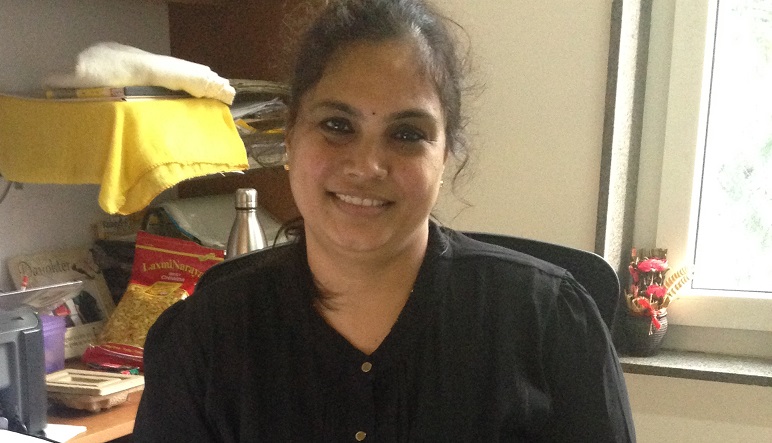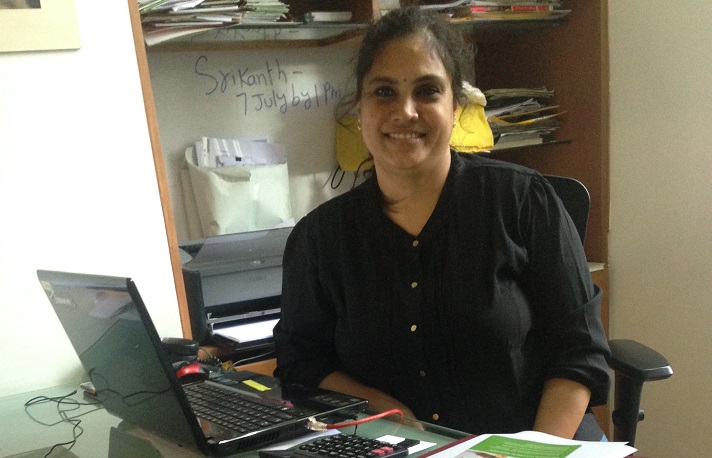
Don’t ask your boss’s marital status, and survive on a new bread every day (be warned, though, German bread is addictive). For the last nine years, Padma PVL has been a German teacher and language department manager at the Goethe-Zentrum in Hyderabad, India. She sat down with Employland for an interview about her students, teaching German, and the cultural differences between Germany and India.
Employland: Padma, why did you decide to learn German?
Padma Pvl: After my children grew up, I had a lot of free time and wanted to do something – something different. At that time, not many people learned foreign languages, and if they did, they typically learned French. That’s why I chose German. Today the interest in learning German is actually very high. For about five years now the number of German Language has increased dramatically.
Employland: Well, that’s good news for Germany! What is your students‘ motivation behind studying German, or pursuing a German degree?
Padma Pvl: Most of our students, around 90 percent, plan to pursue a Masters in Germany. But of course all are also planning to work there. But here’s their problem: They don’t know who in Germany to reach out to. Just recently, several students came to ask me how they might find work in Germany. They don’t know who they can approach directly. Our job is to teach German, but more and more we’re asked to help students find German jobs. We had next to no information about the possibilities and ways to find an employment in Germany. Now I can refer my students to job exchanges and to Employland, the latter even arranging for the work visa.

Employland: Your job is to teach German, but your students also learn about Germany, right?
Padma Pvl: Yes, we prepare our students for life in Germany. For example, Indians are used to spices and very flavorful food, whereas German tend to utilize less spices. So I tell my students to consider purchasing spices in an Asian market, and to carry them along with them, so they can modify German food to their taste.
Employland: You have been in Germany three times, how was your own experience with food over there?
Padma Pvl: It was okay. I know what to expect and what not to expect. I don’t like bread here in India, I mean, we are all rice eaters, especially in South India. But I enjoy the bread and cheese in Germany, in fact I love it. Unfortunately, I forgot to find out the name of one kind of cheese that I liked in particular: I’m still dying for it. Addicted! (laughs) That’s what I tell my students. Germany has nearly 300 different kinds of bread and cheese.

So you can try a new bread every day and survive for over a year. And then Germany also has delicious salads. The only thing is you need to add some extra spice to make them really incredible. Visitors to Germany need to tune their minds when going there, then all these issues will be smaller issues. That’s what Landeskunde is. We teachers prepare students for Germany. We have to motivate our students and show them the way.
Employland: Is there anything else besides food that is special about Germany that you talk about with your students?
Padma Pvl: Yes, we definitely emphasize the cultural component. See, when we meet people for the first time, have our first conversations, we Indians talk about family. The first questions we ask are: Are you married? Do you have children? etc. We become so personal. I mean, these topics are all perfectly acceptable for Indians. But Germans don’t expect to have conversations like these, at least initially. So, in a formal encounter, please don’t ask right away if someone is married.

Employland: About what other topics do you advise your students?
Padma Pvl: Well, I also encourage my students not to live with other Indians while in Germany. They should live with different nationalities. What tends to happen is we get used to these clusters, we get comfortable. We have our group of contacts and end up only speaking Hindi or Telugu or Marathi, whatever it is. So students lose the opportunity there to learn about other cultures.
Employland: Thanks, Padma, for the interview.
Also in our blog: It has been 11 years since Shyam Machiraju left India to pursue a Masters in Germany. Today he plays an important role as engineer and project manager in an international company. Read the interview with Machiraju here. In April of this year, Darlan (25) left his home in Brazil to come to Hamburg and start his job in a German company in the E-commerce division. He shares his experiences with us: Guest Commentary. Also a good read: Naked greetings in the sauna, a bakery on every corner, and – ha – German buses do run late! Megan Lester, a 23-year-old from Portland, Oregon (USA), shares her experiences from staying in Germany.
